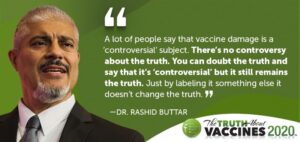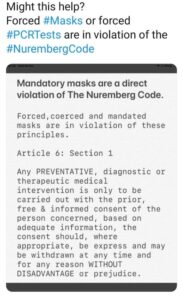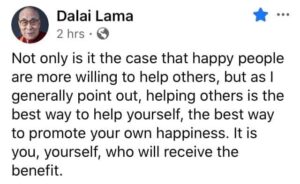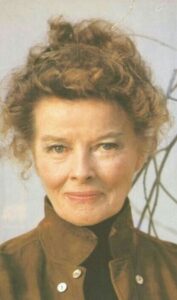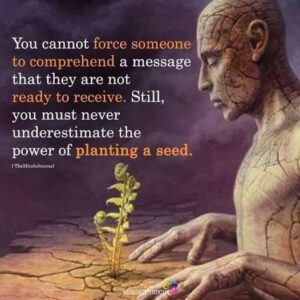Conspiracy theory you say? Well please read what some cops in NSW are saying about COVID-19 restrictions and why they reject them.
A longish read but finally we’re hearing what many cops are really thinking.
October 26, 2020
To: Michael Fuller
Police Commissioner of New South Wales
RE: Open Letter Concerning the Police Enforcement of ongoing COVID-19 restrictions
We are writing to you to raise concerns we have about the use of the police to enforce the ongoing restrictions placed upon our citizens relating to COVID-19, which has seriously eroded community trust in our great police force.
Since the Attorney General Declared a State of Emergency for the novel coronavirus, our governments have acted upon certain powers to impose restrictions on its citizens, using the police to enforce their rules.
Due to the novel nature of the SARS-CoV-2 virus, most people concurred that certain restrictions should be followed, until more was learnt about the virus.
With the initial modelling from the Imperial College in the UK [1] and the Peter Doherty Institute here in Australia, indicating a catastrophic number of cases that would severely burden our hospital system and could result in up to 150,000 Australian deaths [2], it is easy to comprehend why our governments would respond as they did and why the vast population would comply.
With these frightening projections it became evident that we needed to find a way to quickly diagnose the disease. Yet the Centre for Disease Control in the US states that “no quantified virus isolates of the 2019-nCoV are currently available”. [3] So even without the virus being isolated, the RT PCR test was picked to become the gold standard for testing.
We note that the modelling was later found to have serious calculation errors, such that experts who later reviewed it have said “no serious scientist gives (it) any validity”. [4, 5] And now the RT PCR test has been proven to be unreliable at best, with the inventor stating it should “never be used to diagnose infectious disease”, because it cannot tell if what it detected is alive or dead. [6, 7, 8] This test is still being relied upon to make critical decisions in the interest of public health and safety.
In the same way we cannot use an inaccurate speed detection device to proctor a civilian’s speed, the same must be demanded of a faulty RT PCR test and as such, police should not in any way mandate testing for covid-19, or rely on any outcome of the results.
Now that we have almost 12 months of statistical data that can be relied upon, in place of flawed computer modelling, these statistics show a reality that is far from the modelling projections, which were relied upon by National Cabinet in their response.
For example, we now know that around 45% of people who contract the virus are asymptomatic [9] and asymptomatic transmission is between 0-2.2% [10]. We also know that 80% of people who contract the virus will only have mild symptoms [11] and it is overwhelmingly the elderly and immunocompromised who are at risk of severe symptoms that could result in death. [12]
At the time of writing, the world-wide survival rate for covid-19 is 97.3%. [13] The ordinary flu is 99.9%. [14]
Furthermore, statistics clearly show that while the confirmed cases may be on the rise, the percentage of deaths is plummeting.
Here are some statistics which reflect this reality: –
Sweden and Taiwan did not enforce lockdown on its citizens like much of the world did. Although Sweden failed to take better precautions to protect the elderly in the early stages, their death rate is comparable, and Taiwan’s is outstanding: –
The statistics show there is a high infection rate across the globe, but very low deaths; regardless of whether there was forced lockdowns or not. What we can derive from analysis of this is that these two distinctly different ways have resulted in much the same outcome.
We note from the recent Federal budget, huge debt and unemployment, is that our lockdowns have created a series of problems that now seem to outweigh the threat this virus poses. In our line of work, we know that the socioeconomical problems created here will transpire into a greater threat down the track, as people struggle to deal with the collateral damage this is causing.
We have been told that the advice from the World Health Organization is a key aspect to the National Cabinet response, yet Dr David Nabarro of the WHO recently stated “We in the World Health Organization do not advocate lockdowns as the primary means of control of this virus,” [15]
So in spite of the facts, as they stand now, it would appear that the National Cabinet has been lagging in its capacity to adapt to the reality of the situation and this is causing them to fail in their duty to respond in proportion to the risk. The risk being overwhelmingly with the elderly and immunocompromised. [16, 17, 18]
What is even more concerning is the prohibition on prescribing hydroxychloroquine for COVID-19 [19], when over 121 peer reviewed scientific studies have shown it to be effective in treating and preventing the disease [20, 21, 22]. Instead, the federal government has done a vaccine deal with AstraZeneca [23] and Australians told we cannot expect to go back to normal until a vaccine arrives.
AstraZeneca has been found guilty of offences relating to off-label or unapproved promotion of medical products, making false claims, kickbacks and bribery, consumer protection violation, healthcare offences, government-contracting violations and more. Since 2000 they have been fined over US$1.1billion dollars for these offences and violations. [24] Still, they have been granted protection from future product liability claims relating to its COVID-19 vaccine [25].
Alarmingly, Prime Minister Scott Morrison stated they will make the vaccine “as mandatory as you can possibly make it” [26], in spite of the criminal record of its producer, their exemption from liability claims, the fact we already have at least two approved and extremely safe medications in Ivermectin [27] and hydroxychloroquine; shown to be effective treatments and the reality that the virus does not pose a serious threat to the healthy. It seems these decisions appear to be corporate interests, not in the best interests of public health and wellbeing as is claimed.
All this indicates that the ongoing restrictions on the healthy population is a disproportionate response, yet the police are still expected to continue to enforce these measures and at risk of being forced to vaccinate against a disease that is showing not to be virulent, with a vaccine that has had no long-term safety studies and then forcing it upon the population. The evidence would suggest resources are better directed to protect the vulnerable.
We are concerned with the legitimacy of the actions we are being told to take against the citizens of Australia. States and territories cannot rise above the commonwealth constitution as well as international treaties we are signatories to, yet this is occurring.
Under the state of emergency, the emergency requirements are qualified and restricted by the significant fact that emergency requirements and directions cannot request an individual to be isolated, detained, tested, vaccinated, medically treated or bodily searched in the absence of a biosecurity control order issued to the individual.
These measures are referred to as biosecurity measures and are captured under Subdivision B of Division 3 of Part 3 of Chapter 2 of the Biosecurity Act 2015. [28]
(Emergency and public health powers, at the States and Territories, do not provide a carte blanche to breach an individual’s human rights by isolating them, or detaining them or testing them without the proper required notifications and risk assessments first).
There is an inter-governmental agreement [29] which places the Commonwealth in the lead as well as the Australian Health Sector Emergency Response Plan [30]. This ensures that the States and Territories act to compliment the Federal Legislative Framework.
Article 7 of the international convenient of civil and political rights states “no-one shall be subjected to torture or to cruel inhuman, or degrading treatment or punishment, in particular, no-one shall be subjected without his free consent to medical or scientific experimentation.” [31]
Article 27 of the Vienna convention on the law of treatise “A party may not invoke the provision of its internal law as justification of its failure to perform a treaty.” [32]
Article 7 of the Australian human rights commission Act 1986 states “no-one should be subjected to torture or to cruel inhuman or degrading treatment or punishment, in particular, no-one shall be subject without his free consent to medical or scientific experimentation. [33]
Section 109 of the commonwealth of Australia constitution states “when a law of a state is inconsistent with a law of the commonwealth, the latter shall prevail, and the former shall to the extent of the inconsistency being valid.” [34]
With federal and international legislation breaches, it will be taken that we are complicit and consensual in their undertaking on the people of Australia, potentially rendering us criminally liable under the Crimes Act 1914 [35], as well as the Criminal Code Act 1995 [36].
Many members of the force are fed up with the approach to enforce oppressive rules placed upon the population in the name of COVID-19 and the looming mandatory vaccinations. We feel a real calling to do our part to stop this oppression, so we are writing to you to raise the following issues:-
• Police Force employees have ‘choice’ as to whether or not to receive vaccines;
• The Police believe that all members of the community also have choice around receiving vaccines;
• Police do not participate in any way in the forcing of vaccines upon the population;
• That the Police Association start preparing to defend Police employees who choose to not be vaccinated
• To raise the alarm that there is a global dictatorship occurring and the Police Force is being used as a tool to push these global and corporate agendas upon the population; and
• To warn the Police Force not to simply acquiesce to these requests, rules and laws and to act in the best interest of its population, not tyranny of government.
Recently letters have been written to our leaders from the legal fraternity, including high profile Judges and QC’s [37], The Australian Institute for Progress penned by 30 public intellectuals including 15 professors of relevant disciplines, one of whom is an advisor on health and well-being economics to the UK government [38], Advocate Me’s open letter to all leaders seeking to review disproportionate response to SAR-CoV-2 [39], as well as hundreds of doctors from the medical fraternity [40]. Despite the government continually parroting that they are following the advice of ‘the experts’, all these requests have been ignored and the police used as the enforcers of these senseless rules.
We ask that you consider the information provided herein and the NSW Police Force statement of values: –
Each member of the Police Force is to Act in a manner which:
• Places integrity above all;
• Upholds the rule of law;
• Preserves the rights and freedoms of individuals;
• Seeks to improve the quality of life by community involvement in policing;
• Strives for citizen and police personal satisfaction;
• Capitalises on the wealth of human resources;
• Makes efficient and economical use of public resources; and
• Ensures that authority is exercised responsibly.
Many of us believe that we are removing our own rights and freedoms by enforcing these rules upon the community, including our family and friends. And the community are confounded by the intensified police enforcement around peaceful freedom protests and how inconsistent this was when compared with the Black Lives Matter protests. This contradiction is further destroying public confidence.
We are reaching out to all our fellow police officers across the country, to write a similar letter to their respective police commissioners, or sign our form at https://advocateme.wixsite.com/copsforcovidtruth to show your support for this stance, which we have called Cops for Covid Truth.
With trust in our police force now seriously eroded, we ask you to consider now challenging the necessity of the ongoing restrictions to restore community trust, by being an integral part of returning our State and Country back to normality.
Regards
Alexander Cooney Senior Constable Coffs/Clarence Highway Patrol
NSW Police Force
Grafton Police Station
5 Duke Street
Grafton NSW 2460
And other signatories
The full letter including graphs can be viewed here:
https://12224e9c-a5fa-4daf-962b-f9379e0c0efa.filesusr.com/ugd/e12357_2548d50a7bb541acaa2c0705f46f6759.pdf
The full document with graphics is available here:
https://12224e9c-a5fa-4daf-962b-f9379e0c0efa.filesusr.com/ugd/e12357_2548d50a7bb541acaa2c0705f46f6759.pdf

